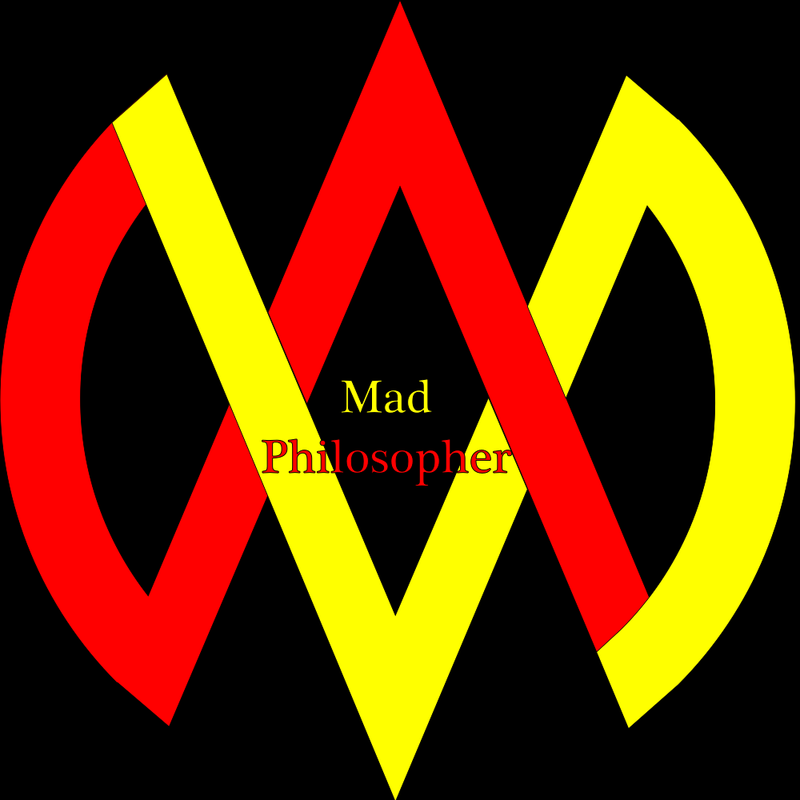Have you not heard of that madman who lit a lantern in the bright morning hours, ran to the marketplace, and cried incessantly: "I seek God! I seek God!" As many of those who did not believe in God were standing around just then, the madman provoked much laughter. Has God got lost? asked one. Did he lose his way like a child? asked another. Or is he hiding? Is he afraid of us? Has he gone on a voyage? Emigrated? Thus did they shout and jeer.
The madman jumped into their midst and pierced them with his eyes. "Whither is God?" he cried; "I will tell you. We have killed him -- you and I. All of us are his murderers. But how did we do this? How could we drink up the sea? Who gave us the sponge to wipe away the entire horizon? What were we doing when we unchained this earth from its sun? Whither is it moving now? Whither are we moving? Away from all suns? Are we not plunging continually? Backward, sideways, forward, in all directions? Is there still any up or down? Are we not straying, as through an infinite nothing? Do we not feel the breath of empty space? Has it not become colder? Is not night continually closing in on us? Do we not need to light lanterns in the morning? Do we hear nothing as yet of the noise of the gravediggers who are burying God? Do we smell nothing as yet of the divine putrefaction? Gods, too, decompose. God is dead. God remains dead. And we have killed him.
"How shall we comfort ourselves, the murderers of all murderers? What was holiest and mightiest of all that the world has yet owned has bled to death under our knives: who will wipe this blood off us? What water is there for us to clean ourselves? What festivals of atonement, what sacred games shall we have to invent? Is not the greatness of this deed too great for us? Must we ourselves not become gods simply to appear worthy of it? There has never been a greater deed; and whoever is born after us -- for the sake of this deed he will belong to a higher history than all history hitherto."
Here the madman fell silent and looked again at his listeners; and they, too, were silent and stared at him in astonishment. At last he flung his lantern to the ground, and it shattered into pieces and went out. "I have come too early," he said. "My time is not yet. This tremendous event is still on its way, still wandering; it has not yet reached the ears of men. Lightning and thunder require time; the light of the stars requires time; deeds, though done, still require time to be seen and heard. This deed is still more distant from them than most distant stars -- and yet they have done it themselves."
It has been related further that on the same day the madman forced his way into several churches and there struck up his requiem aeternam deo. Led out and called to account, he is said always to have replied nothing but: "What after all are these churches now if they are not the tombs and sepulchers of God?"
~Thus Spake Zarathustra
I live in the world of Holy Saturday. I live in a world in which we have killed God and have to live with his blood on our hands. What does such a world look like? It is a wold where, yesterday, we knew where we were going, what we were doing, and we had a direct line to the divine, He was sitting right next to us at the dinner table. Today, however, he is gone. He is somewhere we cannot see and we can't even prove to ourselves that He didn't just vanish altogether. Today, we don't know anything more than the fact that we are lost, adrift in a world devoid of the meaning it once held. We hope that tomorrow, He will come back and fulfill all of the promises that were made... but we can't be certain that it will happen. We thought we had it all figured out, and then (even though we were explicitly warned) we were surprised by the execution of our Lord and our subsequent despair associated with it.
If this world looks bleak and unrealistic, that's fine. It certainly is bleak, but not unrealistic. We face certain epistemic crises that remain unresolved. The problem of induction, which has no solution, tells us that we cannot truly prove anything meaningful to our lives through experience or reason. The eschatological questions: “What happens when I die?” and “What happens if the world ends?” cannot be answered with any degree of certainty and all we have to go on are some well-reasoned guesses and books written thousands of years ago by people who claimed to have a direct line to the Truth. In other words, even though God himself may, in fact, be the cookie elevated in sacrifice over the altar tonight, I have absolutely no way to tell. All the empirical tools I have at my disposal tell me it is just a cookie, and the best logic can provide me is a well-reasoned guess that it may be more than it would seem. I have to accept that guess on faith, though, the same faith that tells me that the sun will rise tomorrow and that others experience consciousness in a manner comparable to my own. Even more difficult to rationally explore and prove would be the idea of life after death and redemption versus damnation.
However, as Paschal thoroughly explored in his corpus, there is quite a lot at stake here, and guesswork is ultimately all we have. I find myself compelled to carry out my affairs in a manner consistent with this tension between nihilistic despair and extra-rational faith. I must act in a manner consistent with my own human flourishing in this life, but always with an awareness of the possibility of an after-life as well. Ultimately, it is the only rationally self-interested way to approach the horns of this dilemma which surpasses our limited human perception and reason. This isn't to say that I don't try to engender a healthy and fulfilling relationship with God, only that it is incredibly difficult to do so when His only avatars are other human beings as equally repulsive as myself and a silent piece of bread.
The tension of Holy Saturday is the tension of being a rational creature both unwilling to despair and unwilling to forego the ratio which allows this tension in the first place. It is the tension of the philosopher, of seeking Truth, despite the impossibility of fully acquiring such a thing. It is the tension of the pilgrim in a foreign world. It is the tension of a moral actor amidst the amoral. It is the tension of a sinner, a criminal, a vicious creature striving for something greater, striving for perfection, a will to power, an upsurgence of life, and a desire to flourish in a world that is finely-tuned to allow for one's existence but only barely so. It is the tension of being truly Catholic.
“I am reckoned among those who go down to the Pit; I am a man who has no strength, like one forsaken among the dead, like the slain that lie in the grave, like those whom thou dost remember no more, for they are cut off from thy hand. Thou hast put me in the depths of the Pit, in the regions dark and deep.” ~ Psalm 88


 RSS Feed
RSS Feed
